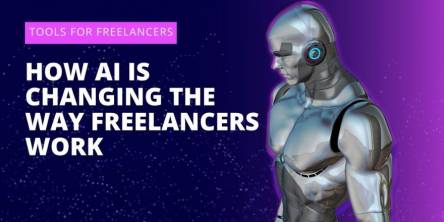Key AI Use Cases: Top 5 Examples of Real-World Impact

AI’s Statistical Impact on Web and App Development
Artificial Intelligence (AI) is rapidly transforming various industries by driving innovation and setting new benchmarks for technological integration. According to IBM, 35% of businesses have already embraced AI, and 77% of devices utilize AI features. This data underscores AI’s growing impact in the global business landscape, reshaping industries and establishing new standards for efficiency and user experience.
Key AI Statistics
One of the most significant areas where AI is making a substantial impact is user experience enhancement. A 2023 survey revealed that 75% of web developers use AI to create more intuitive interfaces. This has resulted in a remarkable 40% increase in user engagement, demonstrating how AI can significantly improve the way users interact with web and app interfaces. AI-driven interfaces are becoming smarter and more responsive, offering users a seamless and personalized experience that keeps them engaged and satisfied.
In the realm of e-commerce, personalization has become a critical factor in driving sales. AI-driven personalization engines analyze individual user behaviors and preferences to tailor product recommendations. This targeted approach has led to a substantial increase in sales, with some e-commerce apps reporting up to a 35% boost in revenue. By understanding and anticipating customer needs, AI helps businesses provide a more personalized shopping experience, ultimately enhancing customer satisfaction and loyalty.
Operational efficiency is another area where AI is proving to be invaluable. AI tools have significantly reduced the time required to develop and test new app features. This reduction in development time enhances the time to market for software companies, allowing them to stay competitive in a fast-paced industry. By automating repetitive tasks and streamlining processes, AI enables developers to focus on more complex and creative aspects of app development.
Customer support has also seen a transformative effect from AI integration. AI chatbots are now handling over 80% of initial customer queries on websites, significantly reducing the need for human intervention by 65%. This not only improves customer satisfaction rates but also allows businesses to allocate human resources to more complex tasks that require a personal touch. AI chatbots provide instant, accurate responses to common queries, ensuring that customers receive timely assistance and support.
AI’s Transformative Effect on Healthcare
The healthcare industry has experienced remarkable advancements through Artificial Intelligence use cases, particularly in diagnostics and patient care. AI systems can analyze complex medical data swiftly, providing quicker and more accurate diagnoses. This capability is crucial in a field where timely and precise diagnoses can save lives. AI-powered diagnostic tools can identify patterns and anomalies in medical images and data that might be missed by the human eye, leading to earlier detection and treatment of diseases.
AI is also improving patient care by enabling personalized treatment plans. By analyzing a patient’s medical history and current condition, AI can recommend tailored treatment options that are most likely to be effective. This personalized approach enhances patient outcomes and ensures that each individual receives the best possible care.
AI’s Role in Retail & E-commerce
Retailers are leveraging AI to personalize shopping experiences and manage inventory efficiently. AI algorithms analyze customer data to provide customized recommendations, boosting satisfaction and sales. This personalized approach helps retailers understand their customers better and offer products that match their preferences, leading to increased sales and customer loyalty.
Inventory management is another area where AI is making a significant impact. AI systems can predict demand and optimize stock levels, reducing the risk of overstocking or stockouts. This efficiency not only saves costs but also ensures that customers can always find the products they need.
AI in Financial Operations: Enhancing Security
In the financial sector, AI improves security and operational efficiency. AI systems detect fraud by analyzing transaction data patterns to identify anomalies and prevent fraudulent activities. This proactive approach enhances security and helps financial institutions protect their customers and assets.
AI is also streamlining operations by automating routine tasks such as data entry and analysis. This allows financial professionals to focus on more strategic activities, improving overall efficiency and effectiveness.
AI's Role in the Automotive Sector
The automotive industry is experiencing significant transformations due to AI. One of the most notable applications is the development of autonomous vehicles. AI technologies enhance vehicle safety and performance by reducing human error and improving decision-making processes. Autonomous vehicles can analyze real-time data from their surroundings, making split-second decisions that enhance road safety.
AI is also revolutionizing manufacturing processes in the automotive industry. AI-powered robots and systems optimize production lines, improving efficiency and reducing costs. This technological advancement allows manufacturers to produce higher-quality vehicles at a faster pace, meeting the growing demand for innovative automotive solutions.
AI in Education: Transforming Learning
AI is revolutionizing education by personalizing learning experiences to fit each student’s unique needs. AI-driven platforms adapt to students’ pace and learning style in real-time, offering tailored resources and assignments. This personalized approach ensures that students receive the support they need to succeed, enhancing their learning outcomes.
AI-powered educational tools also provide teachers with valuable insights into student performance. By analyzing data on student progress, AI can identify areas where students may be struggling and recommend targeted interventions. This enables teachers to provide more effective and timely support, helping all students reach their full potential.
SumUp: AI Use Cases
Artificial intelligence is more than just an innovation tool; it is a foundational element reshaping industries globally. The use cases discussed demonstrate AI’s vast capabilities and potential to drive significant advancements in healthcare, retail, finance, automotive, entertainment, manufacturing, and education. These examples highlight how AI enhances efficiency, personalizes experiences, and solves complex problems across various sectors.
Looking to leverage AI for your business? We specialize in Artificial intelligence development tailored to your industry needs. Whether it’s developing intelligent apps, optimizing operations, or enhancing customer engagement, our expertise can help you harness AI’s power to stay ahead in today’s competitive landscape.
Similar Articles
Have you observed that while some websites are hardly cited in AI-powered search outcomes, others emerge more frequently?
The goal of AI is to enable businesses to operate more efficiently, develop better products, and support QA teams in completing their tasks more effectively.
Bring still images to life with make a photo talk AI tools. Learn how to create a natural AI talking avatar using Media.io's powerful audio-video models and templates.
AI agents are no longer an experiment in financial institutions. They are becoming the operational engine that powers real time decisioning, proactive fraud defense, precise risk scoring, and automated compliance workflows.
Banks are facing a moment of truth. Customer expectations are rising faster than most institutions can reshape their operating models.
How AI SDRs turn first contact into booked meetings with smart outreach strategies in this step-by-step journey breakdown.
How AI is transforming freelancing by boosting productivity, streamlining tasks, and reshaping the future of independent work.
AI chatbots are reshaping scam prevention with real-time detection, deepfake defense, and personalized protection against cybercriminals.
When I first started working in branding, creating a logo was a long and expensive process. Ordering from a designer required weeks of discussions and a budget that small businesses often couldn’t afford.









